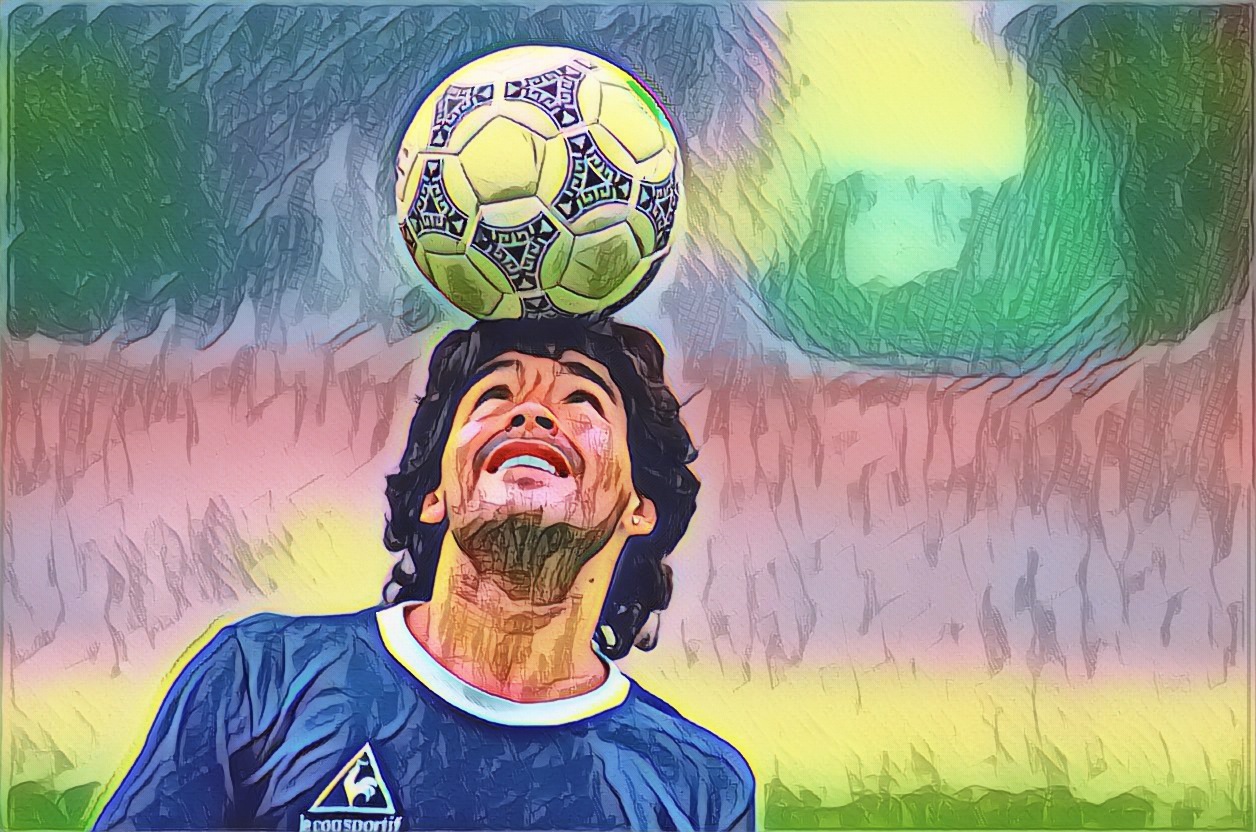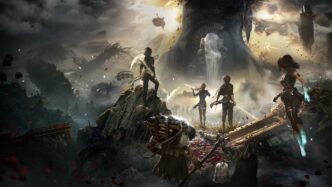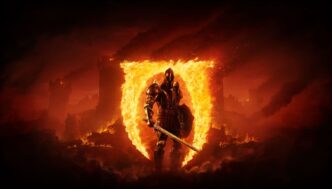“The most important characters in mythology were (the Greek gods) Apollo and Dionysus. Apollo represented reason and Dionysus represented emotion. Those who knew Maradona understand that he was the worst of Apollo, but the best of Dionysus.” -Luciano de Crescenzo, Italian journalist
The city of Naples, situated in the southern side of Italy, highly dysfunctional and impoverished, historically on the receiving end of severe oppression, weeps now at the death of its God. The man who was regarded as the symbol of Naples is gone, forever. It may seem odd that this man was not from Naples, not even from Italy – the man grew up in a separate continent altogether, raised himself to the pedestal of God there as well. But the man embodied everything that the people of Naples aspired to be, he gave birth to the dreams that those people never dared to dream of, the man showed that it was possible to go against the established system and make it to the top for someone who was not privileged. That man, the God of Naples, and Argentina – was Diego Maradona.
There is no doubt that Diego Maradona was one of the greatest players ever to embrace the game of football. However, Maradona’s place at people’s hearts is much, much more than his identity as a great footballer. He was an artist with the ball, arguably the best of the best with the ball on his feet at his prime; but that is not the reason why he was, and still is, regarded as a God to numerous football fans, inside his home country Argentina, in Naples, and in many places around the world. Diego Maradona was a symbol of hope, a living spectacle of what can be achieved even in the direst of situations with all odds stacked up against you.
Maradona loved playing the underdog, and loved playing for the underdogs – because he was born one.
Born in 1960 to an impoverished family in Buenos Aires, Maradona learnt to fight against the unfair cards that luck had dealt him. He grew up experiencing the struggles of life and the unfairness of society, which would influence a lot of important decisions he had to make later in life.
His meticulous talent was evident very early on his career, which resulted in his debut in the national league of Argentina 10 days before turning 16 – becoming the youngest player to feature at the Argentine Primera División. He played for Argentinos Juniors, and in 1981, had the chance to sign for the rich and prestigious club, River Plate. However, he chose the underdog over the privileged and decided to join Boca Juniors – not for the first time in his life.
Maradona had his heart broken when he was not picked in the world cup winning national side in 1978. He would be picked for the 1982 edition, though, but a series of poor performances saw Argentina crash out in the second round. The tournament was held in Spain, and Maradona had just signed for FC Barcelona for a record transfer fee of £5 million – and he failed to live up to the expectation altogether. The pressure was on.
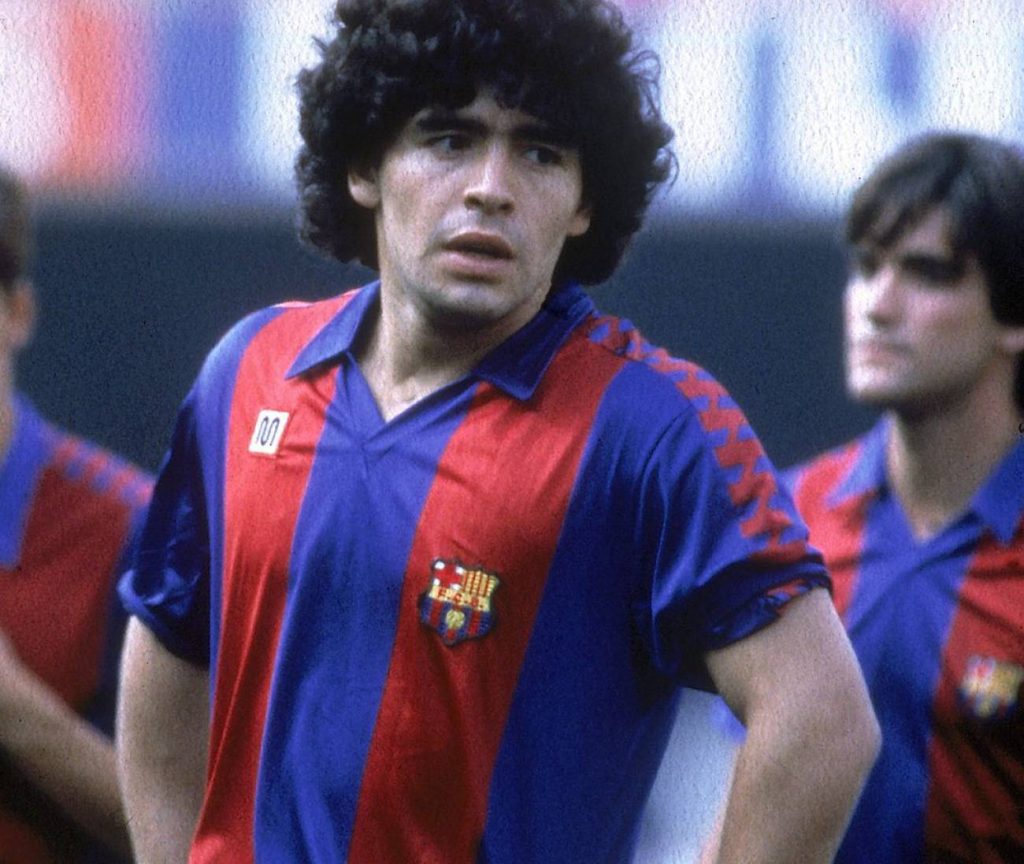
In Barcelona, Maradona did produce his moments of magic. His performance saw him become the first Barcelona footballer to get a standing ovation from the Real Madrid supporters at Santiago Bernabéu, home to the greatest rivals of Barcelona.
However, Maradona’s time in Spain was full of illness, injuries, and emotional outbursts that saw him become the center of controversy multiple times. He could not play for large periods of times – once due to his hepatitis illness, and next due to a horrible tackle from an opponent player that saw him sidelined for three months. However, these were not the biggest obstacles that Maradona had to endure. Opposition fans and players would often resort to using xenophobic and racial slurs at Maradona – opposition players would stop at no means to try and stop the wonderful magician Maradona was with the ball at his feet. He had his own demons – being irregular in practice, resorting to drugs and drinks.
It was perhaps fitting that his last performance for Barcelona came in the form of sheer madness and recklessness on his part. After being constantly at the receiving end of xenophobic and racial abuse from the opposition fans and players at Bilbao, Maradona lost it. He lashed out on his opponents, knocking three players with his head, elbow and knee – and an all-out brawl ensued, with the fans joining in, throwing solid objects to the field, and hurting players, coaches and even reporters. This was the end of Diego Maradona’s time in Spain. His next destination was SSC Napoli, an Italian club in the city of Naples.
It was at Naples where Maradona would place himself as the God that the city needed.
“Napoli were, in football terms, closer to the second division than to a championship. I knew I was going to suffer – a lot – but I also knew that the harder something is, the more I like it. The less faith they had in me or us, the angrier I was and the harder I played.” -Diego Maradona
Naples was a city that had deep rooted problems, and the club SSC Napoli was not a privileged one either. The people of Naples were poor, ill disciplined, and suffering. Organized criminal activities were at large in the city, and the condition of the people was destitute. Perhaps the attraction was exactly in this helpless state of Naples for Diego Maradona.
The people of Naples placed him in the highest of pedestals even before his arrival. There was an ominous possibility before his move to Napoli was confirmed that Maradona may not be able to join Napoli at all. Barcelona wanted an extra £500,000 from SSC Napoli, without which, the deal would have broken down.
The Neapolitans rose to the occasion. They held collection in the streets of Naples – and the deal went through with the help of the funding of the people. It should be remembered that these people already had their own problems – they had to struggle through their abject lives as well. Maradona knew, he was where he belonged; he knew that he could identify as a Neapolitan given his upbringing, he knew he was once again an underdog, and he would try his best to bring success to his new home.
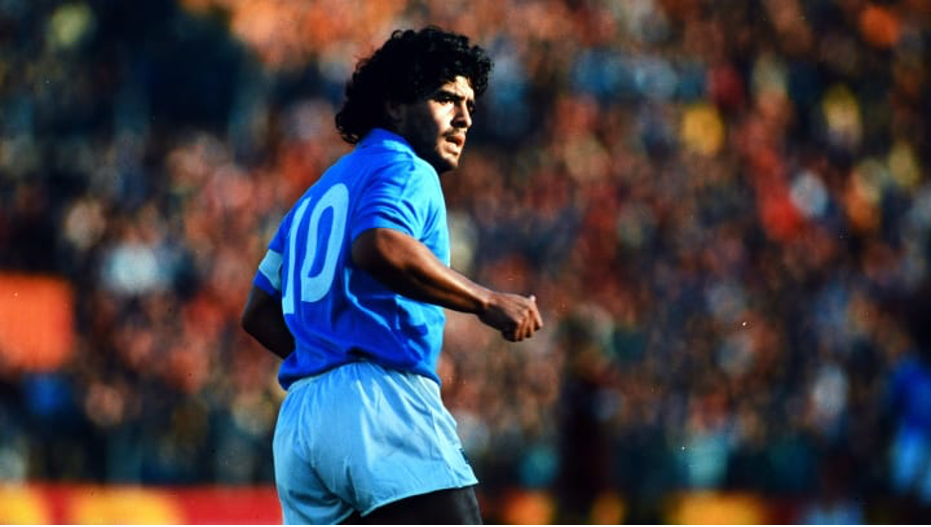
“I want to become the idol of the poor children of Naples because they are like I was when I lived in Buenos Aires,” -Diego Maradona, upon arriving at SSC Napoli
In Naples, Maradona immediately started filling in the shoes of the God that the Neapolitans expected him to wear. The season before he joined the club, Napoli finished 12th and narrowly avoided relegation to the second division. However, Maradona became the club’s top scorer in his first two seasons and took them up to 3rd place in the league table.
Then, of course, came the 1986 World Cup.
What Maradona did in Mexico that year can hardly be described in words. Sure, enough statistics are there to boggle the minds of people who did not witness the World Cup at that time. He scored 5 goals and provided 5 assists in the tournament – he was involved in 10 of the 14 goals Argentina scored in the World Cup. He contributed in 71.42% of his team’s goals – a feat that is yet to be matched, and unlikely that it will ever be. But these statistics can never describe the genius that graced the World Cup for Argentina in 1986.
Argentina was an underdog that year, and their team was mediocre. Their star man, Maradona, would be marked by at least one opposition player, at times more than one. But that didn’t matter – as Maradona put up a show of stupendous skill and determination, and courage.
He single-handedly captained a comparatively average Argentina side to the World Cup glory that the whole nation craved for.
Maradona’s skill and cunning were most outrageously displayed against the match against England in the quarter finals. In the sunny afternoon, Diego Maradona scored two of the most talked about goals in the World Cup history. And it was all the more memorable because of the opponent, England, with whom, Argentina has had severe political conflicts historically.
The first goal was, to put it simply, illegal. Advancing towards a bouncing ball that the English goalkeeper Peter Shilton was more likely to get due to his advantage in height, Maradona ushered his Latin American cunning into play. He jumped up, his head nowhere near the ball, and used his hand to put the ball over Shilton and into the back of the net. The referee did not notice it, and Argentina were 1-0 up. In a post-match interview, Maradona casually hinted that he had some help from “The Hand of God” – a phrase which has fittingly been etched with the memory of the goal ever since.
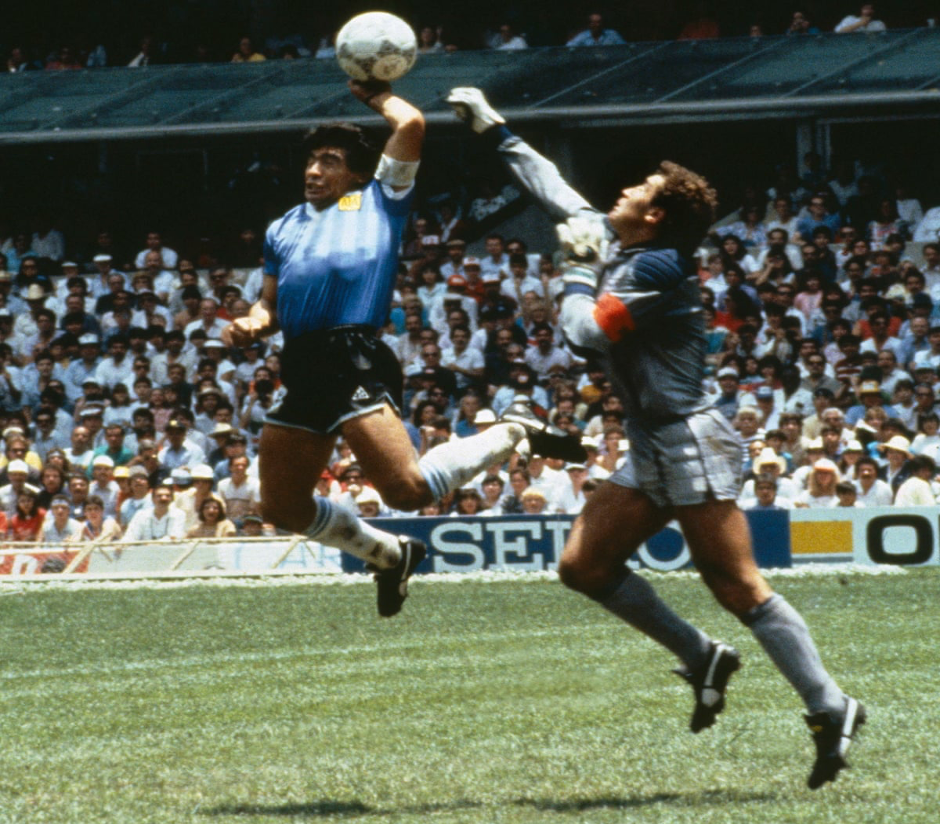
4 minutes later, however, Maradona produced a goal that would put all debate to rest about his skills. He picked the ball up in the middle of the field, then turned – leaving two English players out of the play. He went on an incredible run of 66 yards, where he took on 5 English players and successfully dribbled past each of them, took on the goalkeeper afterwards and went past him as well, and poked the ball into the back of the net. A mesmerizing run of 10 seconds, and Maradona scored a goal that was later voted as “The Goal of the Century.”
Maradona kept producing incredible displays of his skill, with some even putting his performance against Belgium in the semifinal (where he scored a brace) ahead of the one against England. Argentina beat Germany 3-2 in the final, with Maradona setting up the match winning goal with a superb pass.
Diego Maradona’s exploits in the 1986 World Cup made sure that he was nothing less than a God to the whole Argentine nation.
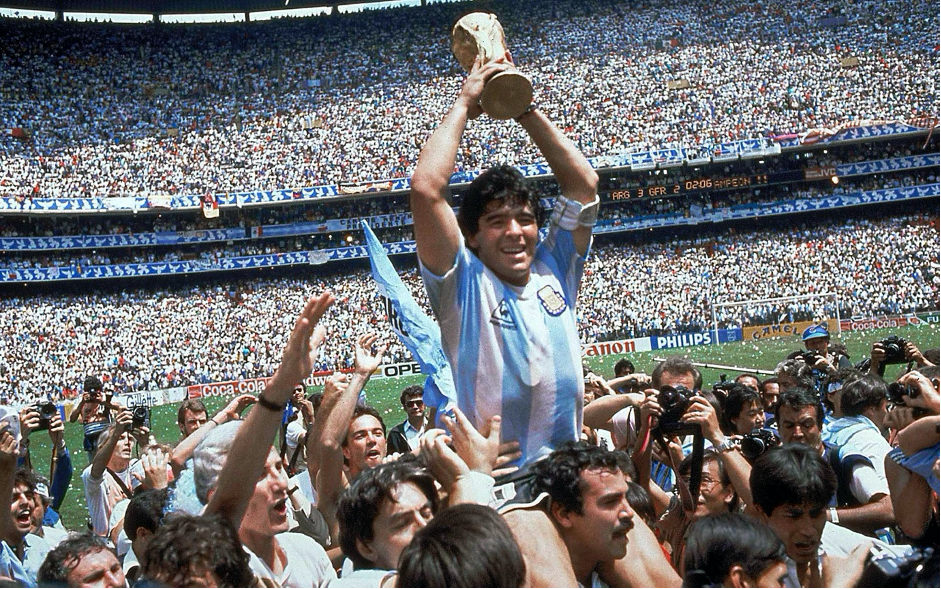
Maradona was the best player in the world at that time, no doubt; and he was back in Naples after the World Cup, with another mission at hand. No club in the south of the Italian Peninsula had ever won a league title till then. Maradona was determined to fight for the city that welcomed him with all their admiration and love.
What happened next is what Maradona’s Naples legend is made up of. He carried Napoli to their first ever league title in their history, being the top scorer for the club that season. Diego Maradona just liberated a city from its age-old sense of inferiority on his own. The memories of banners such as the one in his first match which read, “Welcome to Italy, Napoli!” were no longer haunting the Neapolitans anymore.
Of course, the Neapolitan God did not stop there. He went on to win another league title with Napoli, along with the prestigious UEFA Cup and the Italian Cup. Diego Maradona led a weak and vulnerable side to be placed alongside the elites of Italian football. The city of Naples was still not privileged, but not without glory.
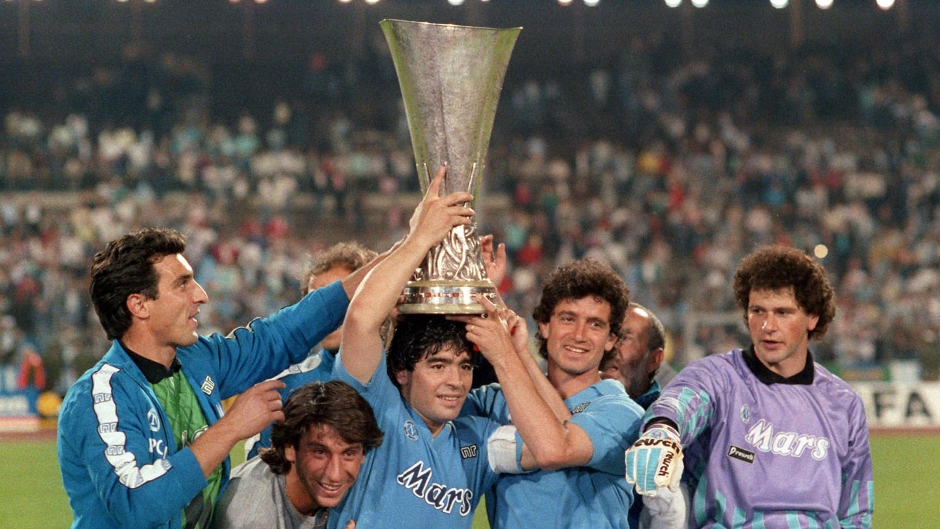
Of course, the career of Diego Maradona is incomplete without its dark sides. His problems with drugs were a constant, which cut his last attempt at grabbing another World Cup short, in 1994. His addiction to cocaine was dangerous, his inability to stick to schedule was problematic wherever he played. Maradona had to pay fine a number of times for not being able to arrive for training in time – or not arriving at all. If the story of Maradona is told from another perspective – we may be talking about a prodigy who considered rules to be beneath him, and never cared about following the system.
But therein lies the uniqueness of Diego Maradona. The very fact that he wanted to break the shackles is one of the most significant reasons why he is devoted by so many people in Naples and in Buenos Aires, who have been subject to the exploitations and injustice inflicted upon them by the established system. Maradona was the living example of overcoming any obstacles that you have to put up with. Diego Maradona managed to light up that glimmer of hope among the numerous disciples he made during his time in Naples, and during his World Cup showings for Argentina. Even in the 1990 World Cup, where he had to take incredible number of painkillers to just to be able to walk, he fought on, and took his side to final of the World Cup.
Statistically, there have been players who boast more impressive numbers. We can take Lionel Messi for example, who was dubbed as ‘The New Maradona’ upon his arrival into the international scene.
Messi is arguably a better and more consistent player than Maradona was – with higher number of goals for both club and country.
However, Messi is yet to take up a place in the hearts of the Argentines even close to that Maradona has, despite being the all-time top scorer for the country. The Godlike devotion that the Neapolitans showed for Maradona has never been matched by the love Messi has received from his fans at Barcelona. And this distinction of Maradona’s holds true compared with other greats who are in the never-ending debate of ‘The Greatest Footballer Ever’, with Cristiano Ronaldo, Pele, Zidane and others.
“Maradona epitomized the mystique of the working-class revolution: aloof and arrogant like the 1980s.” – Manuel Vazquez Montalban, Spanish journalist
As one of the greatest footballers to ever live – and arguably, the most impactful footballer in history – rests in his eternal sleep, we can be sure about one thing. There never was anyone like Diego Maradona, and there never will be.
